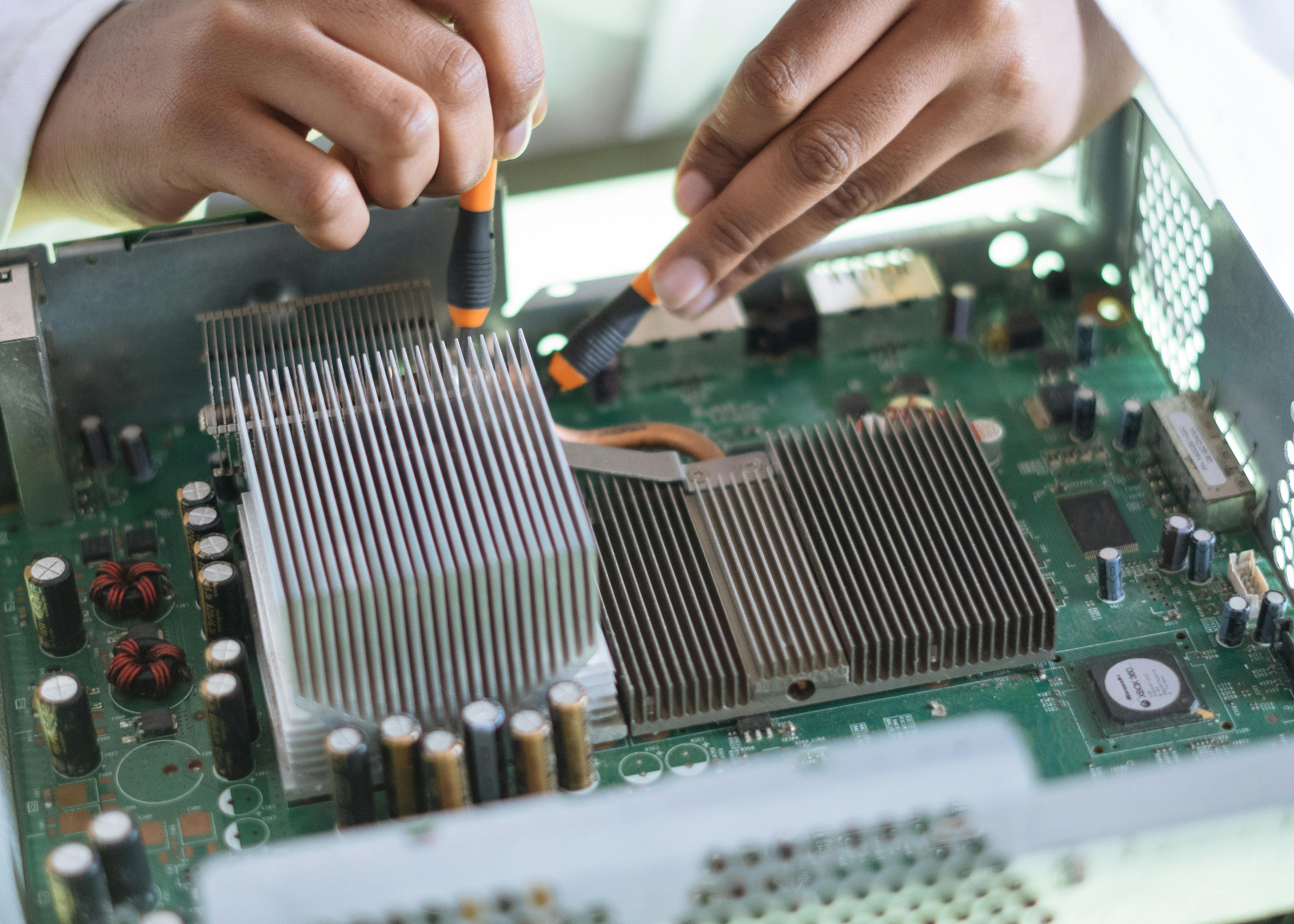ProjectsAboutBlogs
Software Development
Web Design and Development
Mobile Application
Cloud Solutions
Big Data Services
AI & ML Solutions
CRM Consulting
Contact
A remote software development company

OpenAI has recently made headlines with its decision to build in-house chips using TSMC’s most advanced A16 process. This move marks a significant milestone in AI hardware development, reflecting the growing importance of custom silicon in optimizing AI performance. By developing its own chips, OpenAI aims to gain greater control over its hardware, enhancing the efficiency and capabilities of its AI models.
As AI models grow more complex, the need for specialized hardware has become increasingly apparent. In-house chip development allows OpenAI to tailor its hardware precisely to the needs of its AI systems. This approach offers several advantages, including improved processing power, energy efficiency, and the ability to push the boundaries of AI research.
The A16 process is TSMC's most advanced chip manufacturing technology, representing a leap forward in semiconductor design. This process is characterized by smaller transistors, higher performance, and lower power consumption compared to previous generations. These improvements are crucial for AI applications, where processing power and efficiency are paramount.
OpenAI's decision to partner with TSMC is strategic, leveraging TSMC's cutting-edge technology to meet the demanding requirements of AI workloads. TSMC's A16 process provides the perfect foundation for OpenAI's in-house chips, ensuring that they are equipped to handle the massive computational demands of AI models.
Reliance on third-party chips often limits the potential of AI systems, as these chips are not always optimized for the specific needs of AI. By moving to in-house chip development, OpenAI gains more control over the design and performance of its hardware, allowing for better optimization and more advanced capabilities.
The A16 process offers several technical advantages that are particularly beneficial for AI applications. These include enhanced processing power, which allows for faster training of AI models, and greater energy efficiency, which reduces the operational costs of running AI systems. These improvements will enable OpenAI to push the boundaries of what is possible with AI.
The development of custom chips will have a significant impact on OpenAI’s products and services. These chips will enhance the performance of GPT models and other AI tools, enabling more sophisticated AI applications. This could lead to the development of new AI capabilities and services that were previously unattainable with off-the-shelf hardware.
Despite the many advantages, developing in-house chips is not without its challenges. The technical complexity of chip design, coupled with the high costs of manufacturing, presents significant hurdles. Additionally, the transition from third-party chips to in-house development carries risks, such as potential delays and compatibility issues.
OpenAI’s move to in-house chip development reflects broader trends in the AI industry. As AI models continue to evolve, the demand for specialized hardware will only increase. This trend suggests that more AI companies may follow OpenAI's lead, investing in custom silicon to gain a competitive edge.
TSMC is a leader in semiconductor manufacturing, and its A16 process is a testament to its technological prowess. This process not only represents the cutting edge of chip design but also positions TSMC as a key player in the future of AI hardware. OpenAI's partnership with TSMC underscores the importance of this relationship in advancing AI technology.
OpenAI’s approach to hardware development differs from that of other tech giants like Google and Apple, who have also invested in custom silicon. While each company’s strategy is unique, the common thread is the recognition that AI-specific hardware is crucial for future advancements. OpenAI’s focus on the A16 process highlights its commitment to staying at the forefront of AI technology.
The development of in-house chips by OpenAI is likely to have a ripple effect across the AI ecosystem. As OpenAI's hardware capabilities expand, so too will its influence on AI research and development. This could lead to new standards and practices in AI hardware, shaping the future of the industry.
As AI hardware becomes more powerful, concerns about energy consumption and environmental impact grow. OpenAI’s approach to chip development will need to balance performance with sustainability. Ethical considerations, such as the responsible use of AI, will also play a crucial role in guiding this development.
The industry has reacted with great interest to OpenAI's announcement. Experts recognize the potential of in-house chips to revolutionize AI hardware, while competitors are likely considering their own responses. The market impact of this move will be closely watched as OpenAI progresses with its chip development.
OpenAI's decision to build in-house chips using TSMC’s A16 process marks a pivotal moment in the evolution of AI hardware. This move not only enhances OpenAI’s capabilities but also signals a broader shift towards custom silicon in the AI industry. As this development unfolds, it will be fascinating to see how it shapes the future of AI technology.
What is TSMC’s A16 process?
TSMC’s A16 process is an advanced chip manufacturing technology that offers higher performance and lower power consumption, making it ideal for AI applications.
Why is OpenAI developing its own chips?
OpenAI is developing its own chips to gain greater control over its hardware, allowing for better optimization and enhanced performance of its AI models.
How will OpenAI’s in-house chips improve AI performance?
OpenAI’s in-house chips, developed with TSMC’s A16 process, will offer increased processing power and energy efficiency, enabling faster training and more sophisticated AI applications.
What challenges might OpenAI face in this transition?
OpenAI may face technical and financial challenges in developing in-house chips, as well as risks associated with transitioning from third-party chips to custom hardware.
How will this move impact the broader AI industry?
OpenAI’s move is likely to influence the broader AI industry by setting new standards in AI hardware development and encouraging other companies to invest in custom silicon.